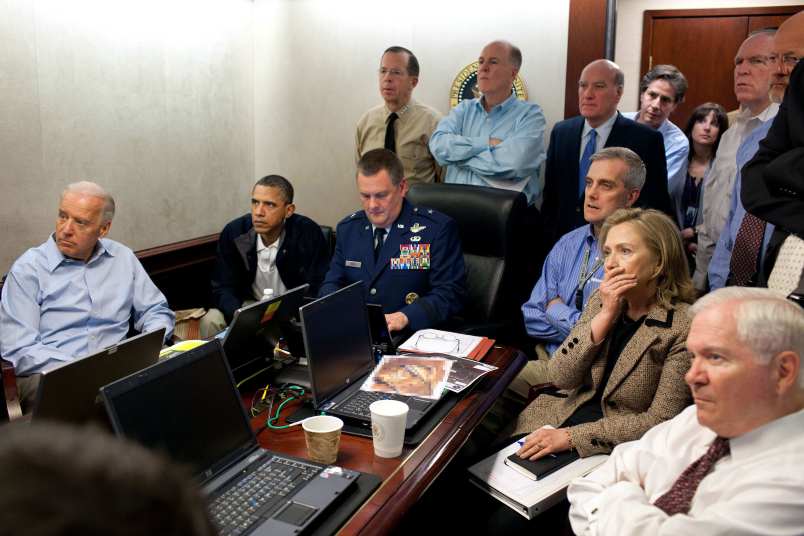Let’s start by affirming a few points. After a bruising and devastating defeat to Barack Obama in 2008, Hillary Clinton went on to serve his administration ably, loyally and well for four years. It’s also true that it’s entirely natural for a future presidential aspirant to find ways to separate herself from the current president, especially one with flagging popularity. Indeed, it is incumbent on a would-be president to make clear what she would have done differently and what she would do if she were elected. As President Clinton has said many times, elections are always about the future.
But there’s an element of Hillary’s strategic distancing I’ve not seen widely mentioned. President Obama is not popular at the moment. His popularity is at best in the low 40s. But among the people who choose Democratic nominees – that is, partisan Democrats – he remains quite popular. And even for many Democrats who feel disappointed, let down or just worn out by the whole six year journey, President Obama represents something that transcends how they may feel about him at just this moment.
Quite apart from the pros and cons of particular foreign policy strategies, I believe the great majority of partisan Democrats feel protective of the President. So it’s a delicate, perilous thing to criticize him so publicly, particularly at a politically vulnerable moment, especially when the nature of the criticism mirrors that of many of the President’s most dogged and aggrieved foes.
The particular nature of the supposed disagreement adds to the equation.
Remember that Sen. Clinton’s hawkishness – summed up by her Iraq War vote but expressed on various fronts during her six years in the Senate – was a significant reason she lost her primary fight against Obama in 2008. And that’s matched by what seems to be an effort on Hillary’s part today to position herself as the candidate of what might be termed the moderate wing of the neoconservative foreign policy intelligentsia.
Both the positioning and the substance of the positioning hearken back to what undid Hillary in 2007-08. Indeed, there’s one more thread: the sense, critical in 2007-08, that Hillary had become a creature of Washington, its factions, its consultants, its conventional wisdoms so impervious to outside influence.
I don’t pretend any of this is likely to derail her. She’s phenomenally popular and for good reason among Democrats and beats all comers in the general. But it all threatens to crystallize a mix of traits many Democrats grew suspicious of in 2008 and could led to a catalyzing if not successful primary challenge to her in 2016.
Perhaps more than anything, as a political matter, once you loose these memes and mini-controversies, you don’t necessarily control them. The Murdoch press, aggrieved frenemies, Fox News, MSNBC, the Sunday Show crowd do with them what they will. Which is half the point, of course. But not necessarily as you planned.






